20 years of collaboration between Hol Chan Marine Reserve (HCMR) and Smith College’s Coral Reef Ed-Ventures Summer Program from Northampton, Massachusetts USA were commemorated with an education and outreach workshop for island stakeholders on Thursday, June 27th. Held at the Grand Caribe conference room north of San Pedro Town, the workshop saw the attendance of the educators from Smith College, past Coral Reef Ed-Ventures mentors, staff of HCMR and invited guests.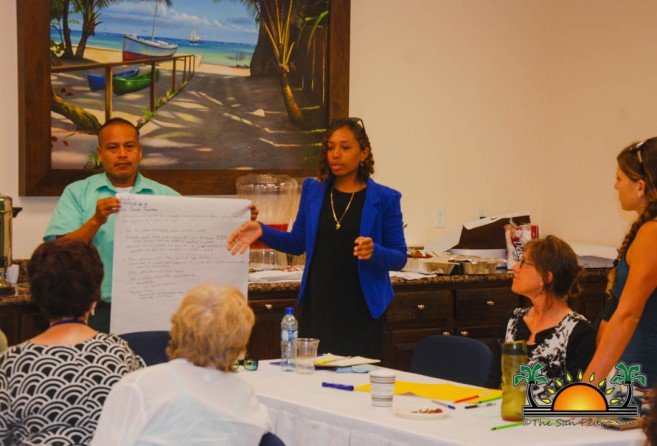
The workshop began at 1PM with HCMR Environmental Educator Mariela Archer testing the attendees knowledge and asking them questions about HCMR’s Education and Outreach Program and how they believe they can improve it. Thereafter, Archer continued with a short presentation about the HCMR program. “Our objectives is to conserve an ecosystem that is representative of the reef complex and which functions as an ecological entity, to provide an area of tourism and recreation but in a controlled and well informed manner, foster general interests in and knowledge of the coastal environment through education and interpretative programs among others,” she said.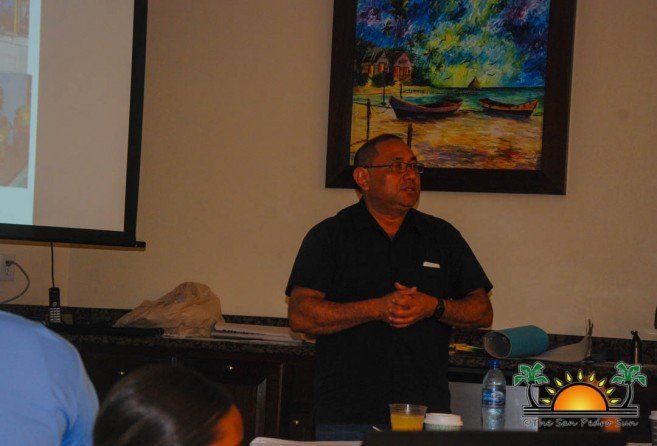
Archer continued by sharing some of the programs spearheaded by HCMR such as mangrove restoration, school workshops, tour guide seminars, reef fest, beach and lagoon clean-ups, among many more.
Smith College Marine Biologists and Environmental Science Professor David Smith then gave a presentation about their Coral Reef Ed-Ventures Summer Program and how they have evolved in the past 20 years. “Since 1999, the free, fun and educational camp have been a cooperative effort between students from Smith College and the HMCR, and aims at educating children on the protection and preservation of their surrounding marine environment. Coral Reef Ed-Ventures was founded by three Smith College professors (Al Curran, Susan Etheredge and Catya Harrold) and HCMR Director at that time (Miguel Alamilla),”said Smith.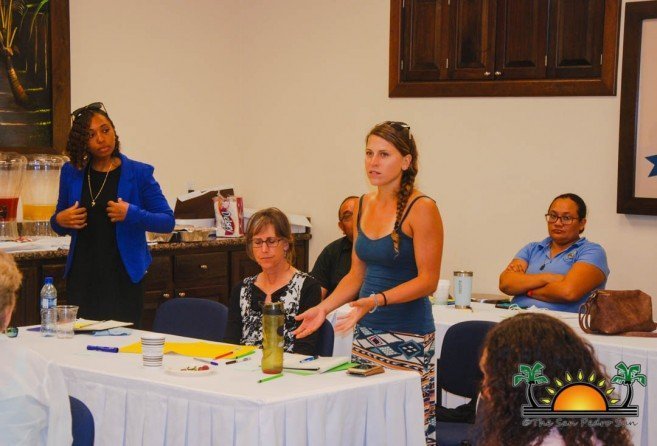
Thereafter, he shared the objectives of the summer program which are to conduct a marine and environmental science program for local school children, from ages 7 through to 11, conduct an investigation-based program for older students, many of whom are ‘graduates’ of the youth camp, pursue coral reef-related research with Smith College professors and local partners, interact with the local government with local community in advancing appreciation for the invaluable marine resources of the region, and to understand ecology threatened coastal habitats.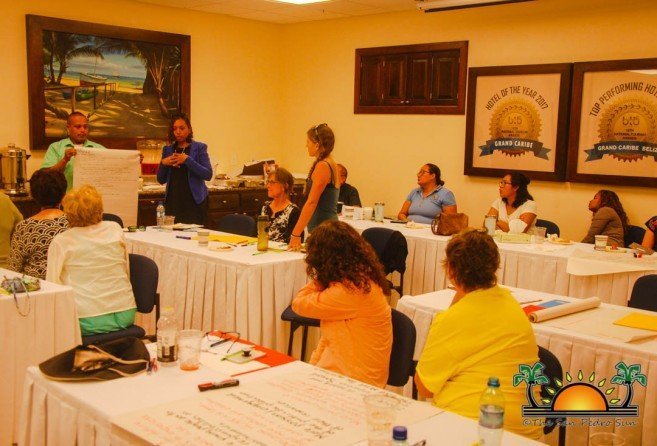
Smith continued by stating that this program has not only been beneficial to island children but also students from Smith College. “It enhances skills at expression through writing, art and music, increases quantitative skills through data collection, they gain knowledge of scientific methods, including systematic recording of observations and hypothesis development, a sense of community and empowerment for advocacy and of the reef ecosystem, and connection to HCMR’s mission, “ he said.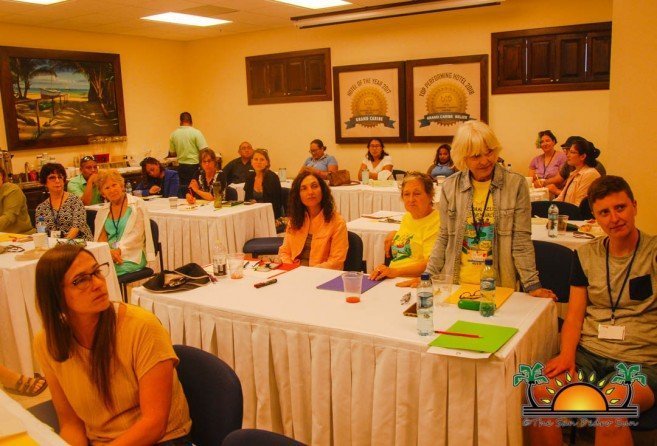
He further shared how the six students are selected and sent to San Pedro Town every year to spearhead the summer program. Interested students apply and then go through an interview process. “When we select them, we look to see if they have any experience in environmental and conservation topics,” said Smith. After the six students are selected, they take a 1-credit class in the spring semester to learn about Belize’s natural history and culture, identify a camp theme, and prepare for teaching and research. “When the students arrive on the island, they advertise the summer program and let people know that they are here. They host free marine themed movie nights, visit different schools to promote it among the children, and set up a booth at the annual lobster fest block party,” he said.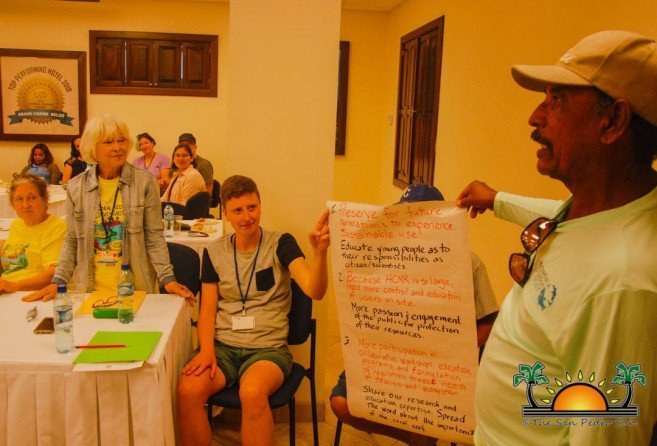
The summer camp is usually divided into two separate sets of activities. The Reef Program is geared towards student campers ages 12 and up, whose focus is mapping the impact of plastic pollution, erosion, and activism in the community. They also enjoy field trips to the beach, mangroves, and the reef as part of their mapping activities. The second part of the camp is for children from ages 7 to 12. This part of the summer program focuses on connections, as students learn about their interactions with the ocean and how their actions impact the environment. Every year, the camp culminates with a special graduation ceremony that recognizes the participants as Coral Reef Experts, after they have completed the educational summer program. 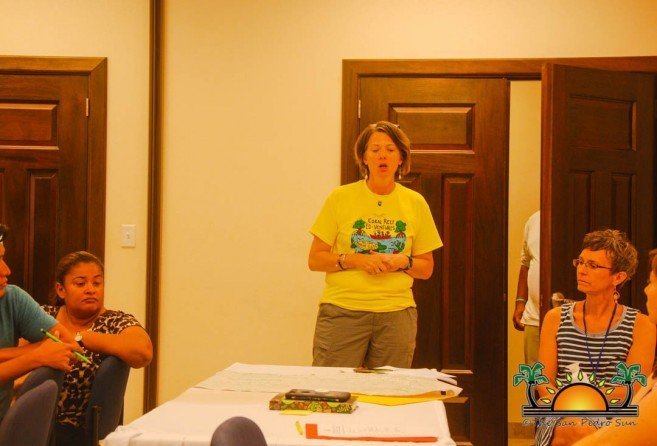 The event usually sees a large crowd of proud family and friends supporting the graduates. According to Smith, over the 20 years of Coral Reef Ed-Ventures Summer Program, 1,280 island children have attended and 77 Smith College students have participated.
The event usually sees a large crowd of proud family and friends supporting the graduates. According to Smith, over the 20 years of Coral Reef Ed-Ventures Summer Program, 1,280 island children have attended and 77 Smith College students have participated.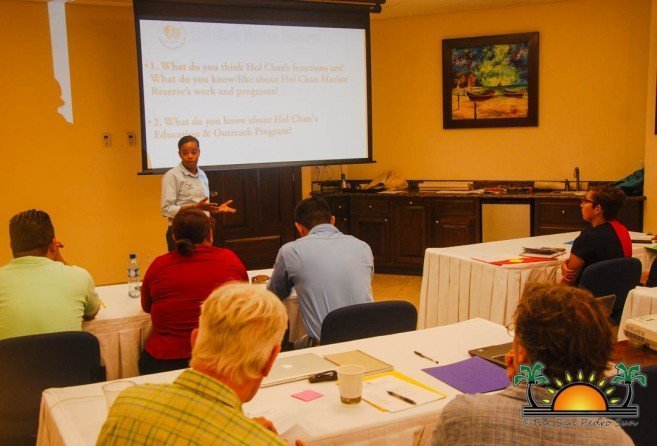
Attendees then engaged in an open discussion on what else they would like to see from HCMR’s Education and Outreach Program. Many of the stakeholders expressed that they would like to see more interaction with the community and island business to educate them about the importance of protecting and preserving both the environment and marine life.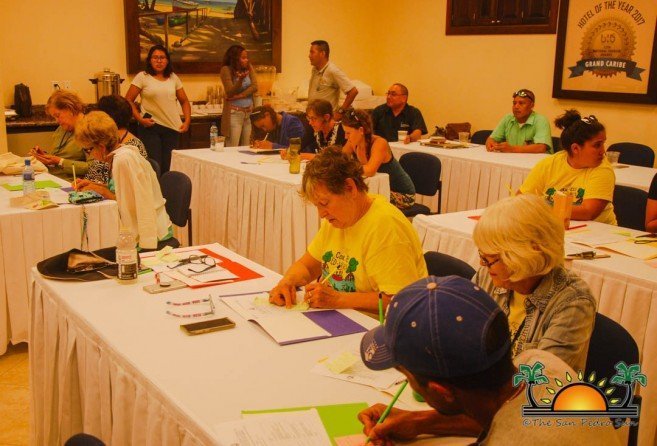
The education and outreach workshop culminated with HCMR Manager Javier Paredes speaking about the future plans and new resources of HCMR. According to Paredes, the building where HCMR office is located is going to undergo more renovations, with the first floor being an educational center. The second floor will remain as the offices and third floor will be a conference room. Construction is expected to soon start. He further thanked Smith College for choosing HCMR and San Pedro Town to host their summer program and that he will continue to support it.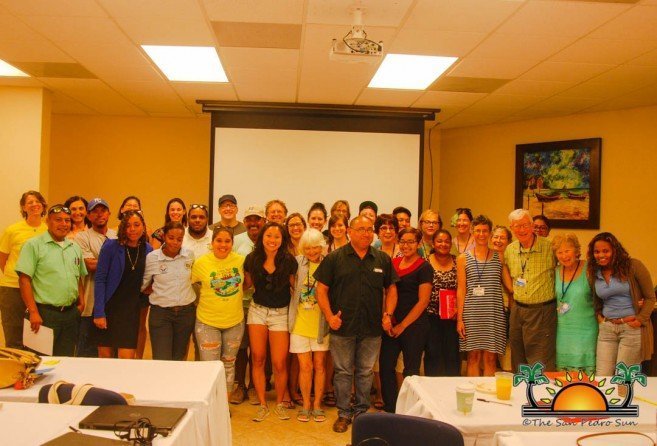
HCMR and Smith College would like to thank everyone who attended the education and outreach workshop and hopes that everyone continues to do their part in ensuring the protection of our precious marine life and environment.
Hol Chan Marine Reserve and Smith College Education host education and outreach workshop in San Pedro Town
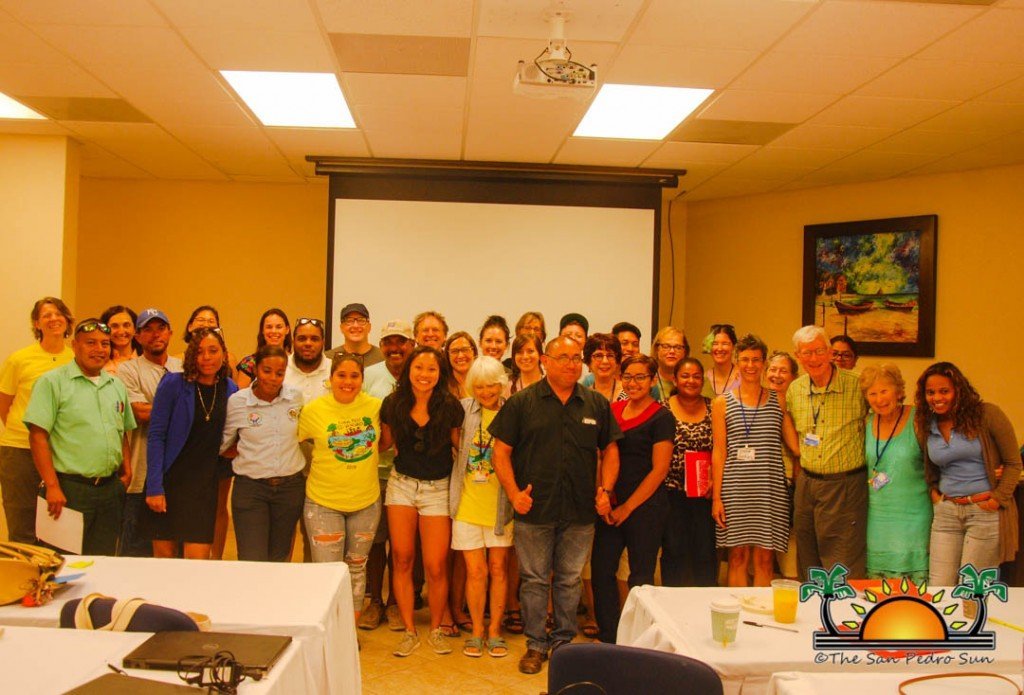
Share
Read more

